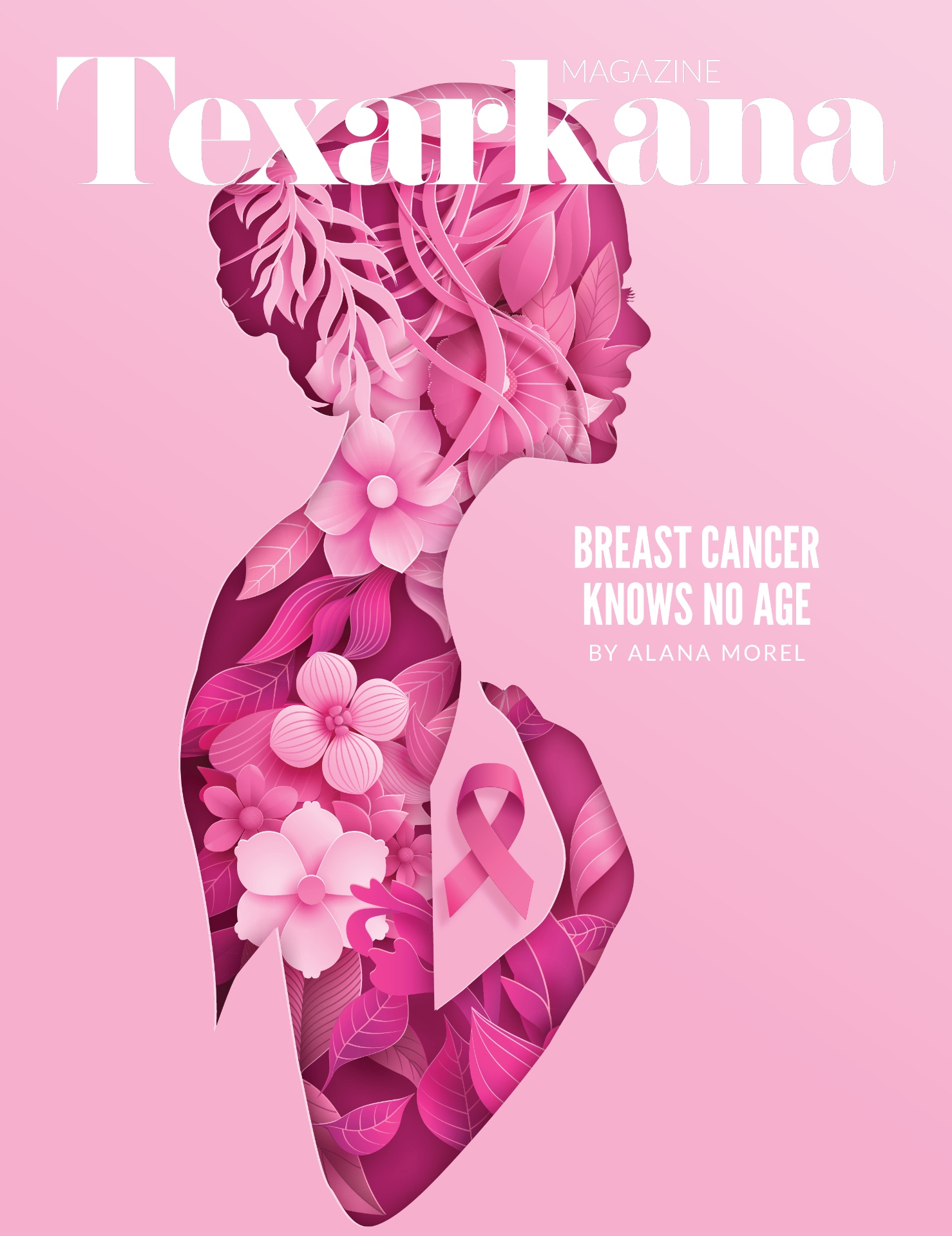Breast Cancer Knows No Age

While breast cancer is commonly associated with women over 40, many may be surprised to learn that younger women are also at risk. In fact, breast cancer is the most common cancer among women aged 15 to 39, and certain types are on the rise in this age group. According to Dr. Liva Andrejeva-Wright, a Yale Medicine radiologist specializing in breast imaging, "While breast cancer is most typically diagnosed in post-menopausal women, this is a condition that can and does happen in young women, too. I have diagnosed women in their 20s with breast cancers."
Approximately 11% of all breast cancers occur in women younger than 45, according to the Centers for Disease Control and Prevention (CDC), with an estimated 26,393 women under 45 expected to be diagnosed this year. Additionally, over 1,000 women under the age of 40 die from breast cancer annually.
In its latest mammography screening guidelines, issued in April 2024, the U.S. Preventive Services Task Force (USPSTF) recommends biennial screening mammograms for women aged 40 to 74. However, for women over 75 or those with dense breasts, the evidence remains insufficient to either recommend or discourage further screening. In contrast, the American Cancer Society (ACS) suggests that women aged 40 to 44 may opt for annual screenings, with mandatory annual screenings starting from age 45 to 54. Women 55 and older can choose between annual or biennial screenings, depending on their health and life expectancy.
"For women under 40, regular screening is not typically advised unless there’s a genetic risk, a mutation, or physical symptoms like a mass or other breast changes," explains Dr. Andrea Silber, a breast oncologist. "While a majority of breast cancers are found during annual breast cancer screenings in women over 50, younger women must pay attention to their own bodies, especially if they detect any unusual changes."
Dr. Andrejeva-Wright emphasizes the importance of talking with a healthcare provider to determine the appropriate time for mammograms based on individual health profiles. "Any time a woman feels a breast mass, which does not go away while doing a breast self-exam at any age, she should get it checked out," says Dr. Silber. In fact, more than half of breast cancer cases are first detected by women themselves when they notice changes in their breasts. Dr. Andrejeva-Wright adds, "Whenever there is a new mass or lump, tell your doctor—it should be evaluated by a clinical physical examination followed by breast imaging." Other warning signs include breast asymmetry or changes in the nipples, such as discharge or peeling skin. While these symptoms don’t necessarily mean breast cancer is present, Dr. Andrejeva-Wright notes, "It's always a good idea to seek a medical opinion if something doesn’t feel right."
A breast cancer diagnosis at any age comes with challenges, but younger women often face unique issues related to finances, reproduction, and body image. "Everyone with breast cancer is at risk for suffering from ‘economic toxicity,’" says Dr. Silber. "For younger women, this can be particularly overwhelming since many are not yet financially secure or established in careers that provide sick leave or paid time off. They may also have young children to care for." Dr. Silber adds, "If you suffer from economic challenges prior to a cancer diagnosis, breast cancer is going to make that worse." For young women from poorer socioeconomic backgrounds, the struggle is even greater. "I take care of women who are young, poor, single mothers working in low-paying jobs with minimal benefits, such as a young woman working at a mini-mart at night."
Beyond the financial strain, younger women also face concerns about fertility. Cancer treatments can impact ovarian function, but cryopreservation of eggs or embryos is an option for those looking to preserve their fertility before beginning treatment. In some states, including Connecticut, insurance carriers cover the cost of cryopreservation for cancer patients under the age of 40.
In certain cases, breast cancer is diagnosed during pregnancy, which adds an extra layer of complexity to treatment. "Breast cancer is the most common cancer we see in pregnant women," Dr. Silber explains. "Pregnancy brings about changes in the breast, and since pregnant women aren’t getting mammograms, it can be harder to diagnose the disease, but it doesn’t mean the prognosis is worse." Treatment is carefully tailored to protect both the mother and the unborn child, with some chemotherapy treatments deemed safe during pregnancy.
Another challenge for young women is how breast cancer treatments can impact body image. "There are incredible demands placed on women in American society about their appearance," Dr. Silber notes. "It’s hard because how someone looks can be part of their self-worth. They may have lost their hair, gained weight, and their breasts don’t look the same. To act like that’s not a thing is not fair—of course, it matters."
Young women may also be searching for a partner when breast cancer treatment brings about body changes more commonly associated with menopause, such as hot flashes or weight gain, particularly around the abdomen. "Hormonal therapies used to treat certain types of breast cancers can put women into premature menopause, often years or decades before their peers," Dr. Silber says. "It’s different when these changes happen in your 20s or 30s."
While there’s no way to predict who will develop breast cancer, some women are at higher risk, especially if there is a family history of breast or ovarian cancer or if they are of Ashkenazi Jewish heritage. Radiation therapy to the chest, such as for previous cancer treatments, can also increase risk.
Genetic testing for BRCA and other mutations can help identify women who may be more likely to develop breast cancer. "Through research, we are learning more about cancer, genetics, and risk factors," says Dr. Andrejeva-Wright. "Young women should be aware of their family history and keep their doctors updated over time as it changes." Although monthly breast self-exams are no longer standard, Dr. Andrejeva-Wright advises women to be "breast aware." She suggests that women perform self-exams at least four times a year and understand their personal risk factors, such as weight gain and alcohol consumption. "Excess weight, particularly after menopause, is a significant risk factor for the development of breast cancer," she says. "Maintaining a healthy weight, regular exercise, and limiting alcohol consumption can help reduce the risk."
While younger women may not be as commonly diagnosed with breast cancer, they are not immune. It’s vital for women of all ages to stay informed, understand their risk factors, and take proactive steps to protect their health.
SOURCES
Dr. Liva Andrejeva-Wright's quotes and breast cancer statistics are derived from articles and interviews with breast cancer specialists at Yale Medicine. Dr. Liva Andrejeva-Wright, who specializes in breast imaging, is often cited for discussing breast cancer risks in younger women. The statistics about 11% of breast cancers occurring in women under 45 and the 26,393 new cases in women under 45 were based on the Centers for Disease Control and Prevention (CDC) data. Information about the new USPSTF guidelines is available in several health publications and the CDC.
Source: Yale Medicine (https://www.yalemedicine.org/news/breast-cancer-young-women) and the CDC.
Dr. Andrea Silber's quotes: These quotes, along with insights about breast cancer’s unique challenges for younger women, body image issues, and economic difficulties, come from her expertise as a breast oncologist. Dr. Silber has been cited in numerous interviews and articles about the struggles younger women face, including the impact of breast cancer on fertility and employment.
Source: Yale Medicine, various interviews on breast cancer awareness in young women (https://www.yalemedicine.org/doctors/andrea_silber).
General breast cancer statistics and risk factors: The risk factors for breast cancer, including family history, Ashkenazi Jewish heritage, and previous radiation therapy, are supported by the American Cancer Society and various research studies. The information on cryopreservation and the impact of cancer treatments on fertility, along with chemotherapy during pregnancy, is based on recommendations from oncologists and fertility specialists.
Source: American Cancer Society (https://www.cancer.org/cancer/breast-cancer.html), CDC, and Yale Medicine.
This article uses data and expert insights from trusted medical sources, including Yale Medicine, the CDC, and the American Cancer Society, to provide an accurate and informative perspective on breast cancer in younger women.

